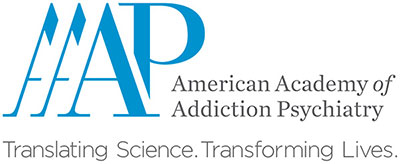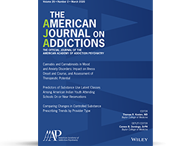Core Competencies for Use of Collaborative Care in the Treatment of Substance Use Disorders: A Psychiatrist’s Guide

The Collaborative Care Model (CoCM) is an evidence-based approach to deliver behavioral healthcare in primary care settings. This model has been adapted to address substance use disorders in primary medical settings. CoCM requires a team of providers; trained primary care providers (PCP) work with embedded behavioral health care managers (BHCM) to provide a range of effective treatment, including evidence-based medication and/or psychosocial treatments. The PCP and BHCM are supported by a psychiatric consultant who engages with the team primarily through indirect care through regular case consultation and treatment adjustment for patients who are not improving as expected. Ideally, a counselor/psychotherapist will be available (internally or externally) to receive referrals when indicated.
 Funding for this initiative was made possible (in part) by grant nos. 1H79TI086770 and 1H79TI085588 from SAMHSA. The views expressed in written conference materials or publications and by speakers and moderators do not necessarily reflect the official policies of the Department of Health and Human Services; nor does mention of trade names, commercial practices, or organizations imply endorsement by the U.S. Government.
Funding for this initiative was made possible (in part) by grant nos. 1H79TI086770 and 1H79TI085588 from SAMHSA. The views expressed in written conference materials or publications and by speakers and moderators do not necessarily reflect the official policies of the Department of Health and Human Services; nor does mention of trade names, commercial practices, or organizations imply endorsement by the U.S. Government.
View the Collaborative Care Model (CoCM) for Substance Use Disorders On-Demand Webinar on the PCSS-MOUD website.
Management of Stimulant Use Disorder Guideline

Developed by AAAP and ASAM, this guideline focuses on the identification, diagnosis, treatment, and promotion of recovery for patients with stimulant use disorder, stimulant intoxication, and stimulant withdrawal.
Providers Clinical Support System-Medications for Opioid Use Disorders (PCSS-MOUD)

PCSS-MOUD, one of our funded initiatives, has an extensive library comprised of resources for treating opioid use disorders and chronic pain.



